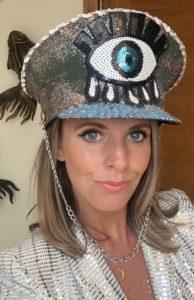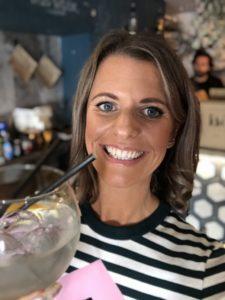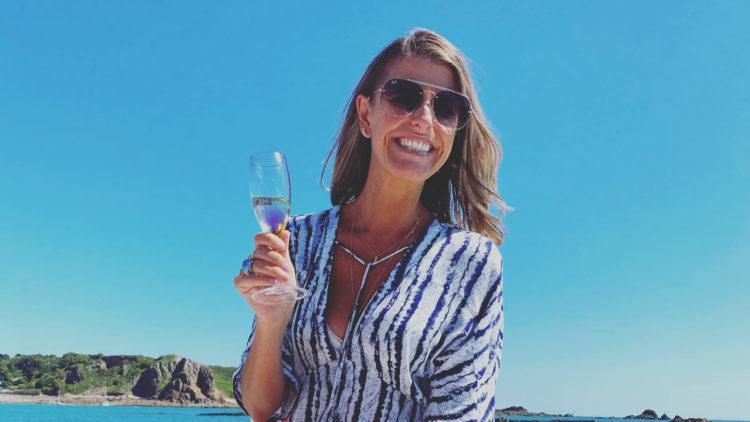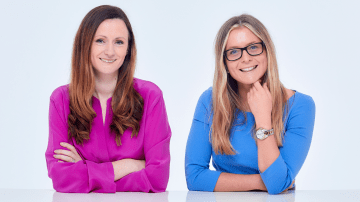Too many messy nights and bad hangovers got Jo Ferbrache thinking: do you really need alcohol to have a good time? Sober Jo talks to Channel Eye about breaking habits and dismantling social norms.
Mimosas for brunch, a beer after work, a night on the cocktails – having a drink means having a good time, right?
As a society, we’re so busy looking forward to that next artisanal gin and tonic, cold pint down the pub, or large glass of red of an evening, that we rarely stop to question the orthodoxy.
In fact, alcohol is so ingrained in our culture that when someone chooses not to have a drink, we act with surprise, followed closely by suspicion: Who doesn’t like a drink? What’s wrong with them? What are they hiding?
But what if we took a step back and applied some critical thinking to our relationship with booze? Would we like what we discovered? For many of us, possibly not.
Why do we drink in the first place?

After too many black-outs and wasted weekends, Jo Ferbrache started thinking about the impact of alcohol on her life, and the reality hit home hard: booze was a problem. While she wasn’t reaching for the hard stuff first thing in the morning, her reliance on drink at the end of a day, whether celebrating or commiserating, was clearly habitual.
Whatever positives she thought booze was bringing to her life just didn’t hold up on closer inspection.
“I was the party girl, the last woman standing at every party. It was part of my ID. For me, having a good time revolved around going to the pub”, said the Jersey-based marketing consultant, who wants to get people talking and thinking about their drinking habits.
“I think alcoholism is a scale and while I wasn’t pouring Liberation Ale on my Coco Pops, I was relying on a drink every night. Before I said hello to my husband or patted the dogs, I’d have a large glass of wine in my hand because that was my reward at the end of a long day.
“I used drink to relax and I used it to have a good time, but it got to a point where it wasn’t doing either of those things”.
“I used drink to relax and I used it to have a good time, but it got to a point where it wasn’t doing either of those things”.
At the end of 2018, Jo had decided enough was enough. No more memory loss, no more hungover weekends. She pledged sobriety for a whole year and chronicled her journey on a blog, Sober Jo More than this, she raised a massive £15,000 in sponsorship for Friends of Jersey Oncology and still, 20 months later, not a drink has passed her lips.
The ‘grey area’ of alcohol consumption
The 35-year-old has fully embraced sober life and now she wants to share her story of sobriety in the hope it might get more people questioning their own relationship with alcohol.
“This year has been really tough. Lockdown was hard and so many people were drinking more than usual; they didn’t have to drive, they didn’t have to leave the house and see other people and people started drinking earlier than they were before. Plus, there was the excuse that all this horrible stuff was going on”, said Jo.
“Now is a really good time to be talking about this. People might think that because they’re not an alcoholic, that they don’t have a problem, but when it comes to alcohol, there’s a huge grey area, and people don’t talk about it enough. If giving up alcohol would make a positive difference to your life, you probably need to reassess your relationship with it”.
The rise of the sober curious

Jo is one of growing number of people questioning the dominant drinking culture. This “sober curious” movement aims to encourage people to reappraise how and why they use alcohol and arms them with the confidence to dismantle old habits.
“I come from a background of working in male dominated professions. I worked at a local brewery, for example, and when it came to drink, I felt like I needed to be one of the boys. I could match the guys drink for drink but what I couldn’t do is get up in the morning and feel fine like they could,” Jo explained.
“I just got really bored of feeling really, really rubbish. I was a sicky-next-day person, the hangovers were hideous. I’d spend most Sunday’s feeling awful. And if you keep doing the same thing over and over again, you’re going to get the same results”.
The turning point was a client’s Christmas drinks. Jo had a great time, from what she could remember, and that was the problem. She’d no idea how she got home and had to piece together the night using receipts she found in her purse.
“I had no recollection of how I’d got home that night and that’s really dangerous. Not only that but I was the MD of a company and I had to go to work the next day. Hungover me and professional me just didn’t align. It wasn’t the way I wanted to present myself anymore.”
“I had no recollection of how I’d got home that night and that’s really dangerous. Not only that but I was the MD of a company and I had to go to work the next day. ”
In November 2018, Jo started researching the sober curious movement. Reading the stories of other people’s sober journeys and seeing the sober celebrities helped her realise that she had a choice and sober didn’t have to equal boring. But if she was going to give sobriety a try, she needed to commit all the way.
“People ask why I chose abstinence and not just moderation but I know I can’t moderate. I’m a 110 percent kind of person in everything I do. I can’t just have a couple of drinks”, she explained.
“Doing it for charity is what saved me. It’s what got me through the year. The charitable element gave me something bigger than myself to strive for. It also meant people didn’t push drink on me because that would have been a pretty horrible thing to do.
“If you have a habit of self sabotaging, I really recommend doing it this way. If it wasn’t for the thought of letting people down, I’d have gone a couple of weeks in, maybe a month.”
“I’m a better version of myself”
Jo admits the first few months were tough, mentally and physically. Without booze to hide behind, she suffered crippling anxiety in social situations. Just talking to people on a night out made her feel close to passing out. But it gradually got easier. She stopped focusing on what she’d given up and started appreciating what she gained.
“I feel like I know myself a lot better now. I’m a better version of myself because I’m not depending on alcohol to have a good time or to be a certain person…It’s not about what you give up but what you gain.”
“I feel like I know myself a lot better now. I’m a better version of myself because I’m not depending on alcohol to have a good time or to be a certain person. I’m so much more productive, and I still know how to go out and have a great time – only now, I remember it. It’s not about what you give up but what you gain.”
She’s also keen to stress that there is no judgement for others who still enjoy a drink. She went public with her story not to preach but to hold herself to account. The more people who knew her pledge of sobriety, the more pressure to stay off the drink. She also hopes that her story might help others re-appraising how they use alcohol in their lives.
“I read something that’s a really good way of describing it: If somebody said to you, ‘We’ve got a wonder drug that will give you clarity, bright eyes, loads more energy, better sleep, better memory and even better dance moves,’ you’d ask, ‘how much and where can I get it?’ That’s what giving up drink has given me…well maybe not the dance moves!”
For more information about Jo’s sober journey head to Sober Jo. There’ll be a Sober Jo event at P52 on 15 October. Tickets available on Eventbrite.














